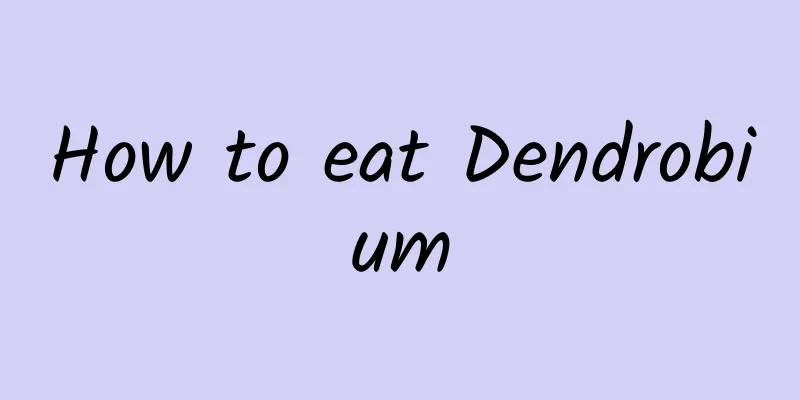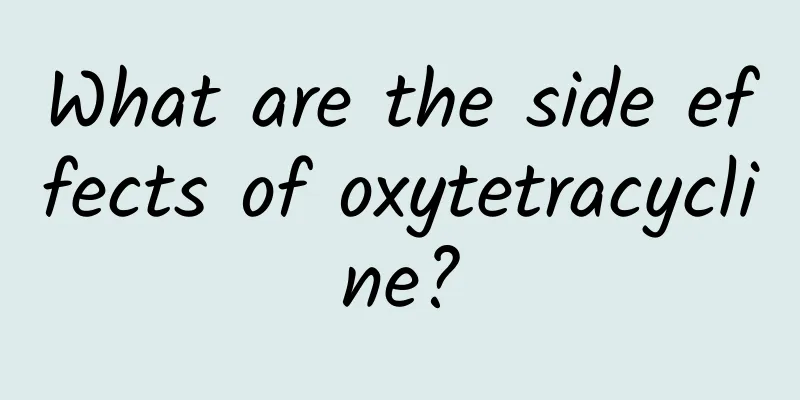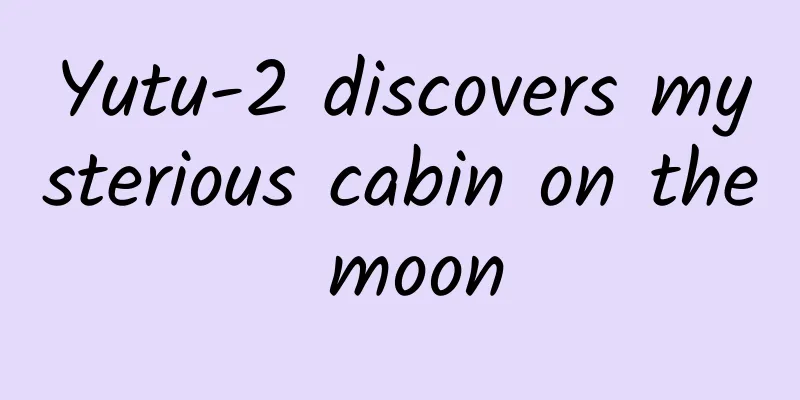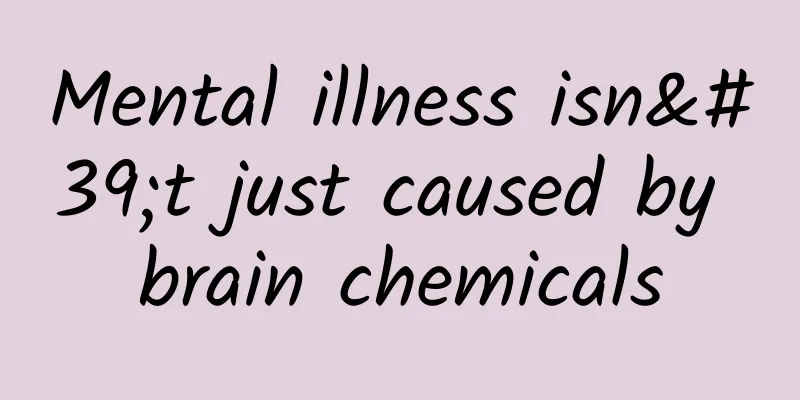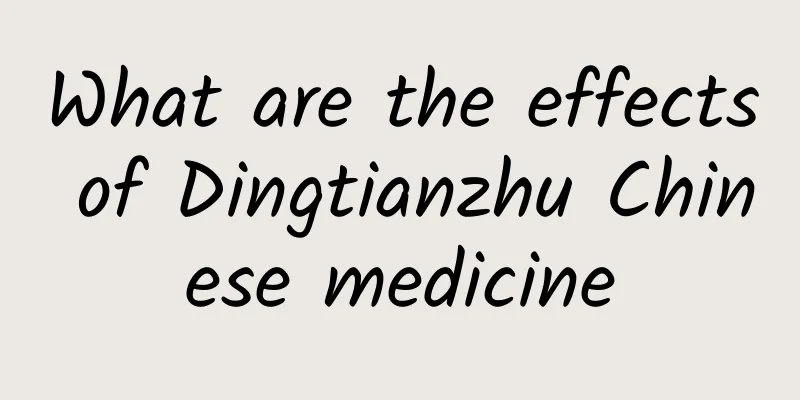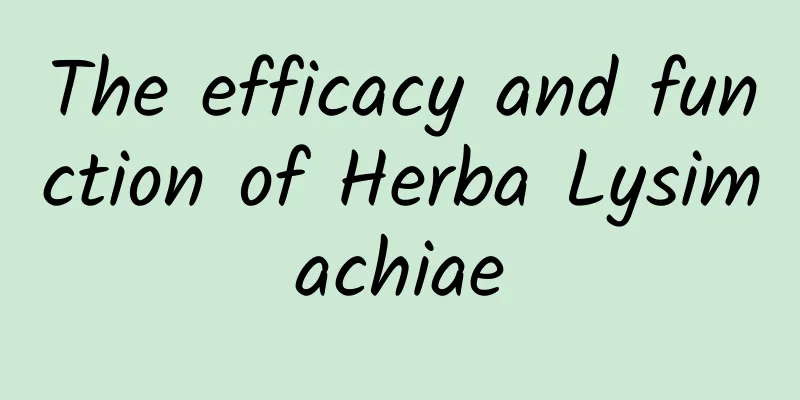What can't you eat when taking Chinese medicine?
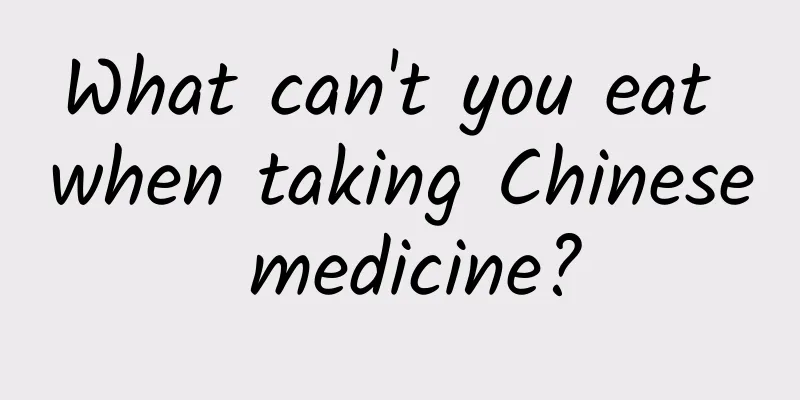
|
Disease is inevitable. Some people with weak constitutions are most likely to get sick. Getting sick is not terrible. What is terrible is delaying the treatment of the disease, which will cause some harm. Modern medicine is very developed. Although clinical Western medicine treatment is very common, some people still choose traditional Chinese medicine for treatment. Although traditional Chinese medicine tastes bitter, it is very effective. So what are the taboos of taking traditional Chinese medicine? Let's take a brief look. Don't eat cold fruits: pears, hawthorns, water chestnuts, tangerines, lilies, bananas, sugar cane, persimmons, etc. In order to ensure the efficacy of traditional Chinese medicine and enable it to better play its therapeutic role, it is necessary to avoid certain foods when taking traditional Chinese medicine. The following points should usually be noted: Do not drink strong tea when taking traditional Chinese medicine, because tea leaves contain tannic acid. Strong tea contains more tannic acid. When taken with traditional Chinese medicine, it will affect the body's absorption of the active ingredients in the traditional Chinese medicine and reduce its efficacy. It is not advisable to eat radish when taking Chinese medicine (except for taking qi-regulating and phlegm-resolving medicines), because radish has the effects of helping food and breaking up qi. Especially when taking tonic Chinese medicines such as ginseng, eating radish will reduce the effect of the tonic and cause it to lose its tonic effect and fail to achieve the therapeutic purpose. Patients with digestive tract diseases such as hepatitis and chronic gastroenteritis should avoid taking garlic when taking spleen-strengthening, stomach-warming and stomach-regulating medicines. Garlic contains allicin, which can stimulate the gastrointestinal mucosa and cause congestion of the mucosa. The Chinese medicine they take will not be able to effectively play its therapeutic role. You cannot eat chili peppers when taking Chinese medicine, especially for heat diseases. It is even more inappropriate to eat chili peppers when taking medicines that clear heat and cool blood or nourish yin and reduce inflammation. Chili peppers can reduce the efficacy of the medicine, making the treatment ineffective or weakening the efficacy. When taking Chinese herbal decoctions and pills, avoid raw, cold, and greasy foods. Because raw and cold foods stimulate the gastrointestinal tract and affect the gastrointestinal absorption of drugs, greasy foods are difficult to digest and absorb, and greasy foods mixed with drugs can hinder the gastrointestinal absorption of the active ingredients of drugs, thereby reducing the efficacy. In addition, people with furuncle and skin diseases should avoid eating saltwater fish, shrimp, crab, mutton, beef and other foods; people with edema should avoid eating salt; hepatitis patients should avoid eating spicy, hot and greasy foods; when taking Schizonepeta tenuifolia, avoid eating fish, shrimp and crab; when taking Asparagus cochinchinensis, avoid eating carp; when taking Atractylodes macrocephala, avoid eating garlic, etc. Commonly used lipid-lowering drugs, antibiotics, sleeping pills, anti-allergy drugs, etc. may interact with substances in certain fruits and vegetables, thereby rendering the drugs ineffective or causing them to produce toxic side effects. For example, some anti-allergic drugs can react with citrus fruits and grapefruit, causing arrhythmias and even fatal ventricular fibrillation. Some fruits react with antibiotics, greatly reducing the effectiveness of antibiotics. In fact, when taking Chinese medicine, you need to pay attention to many taboos. Because when a person is sick, although Chinese medicine tastes bitter, it is very beneficial to the cure of the disease. In fact, when taking Chinese medicine, you should pay attention to the combination with diet. Many people do not pay attention to this, so they will not be able to fully utilize the effect of Chinese medicine, but it will also cause harm to the body. |
<<: What foods can't you eat when taking Chinese medicine?
>>: What are the side effects of broken wall pine pollen?
Recommend
The efficacy and function of thyme
There are so many medicinal herbs in the world, a...
The efficacy and function of veal ribs
For Chinese medicinal materials such as veal ribs...
Does Poria cocos have the effect of whitening?
As the saying goes, a white complexion hides a th...
The efficacy and function of Radix Glehniae
As the pressure of modern life increases, more an...
The efficacy and function of Niu Teng
Niu Teng is a medicinal material that can treat m...
On the Qixi Festival, let’s look at the plants that symbolize love in the Book of Songs.
Produced by: Science Popularization China Author:...
Fermented Chinese medicine
Fermented Chinese medicine is the process of extr...
What's going on with the golden monkeys in Yunnan, Guizhou and Sichuan?
The golden snub-nosed monkey is a very famous rar...
What are the benefits of Canadian ginseng?
Ginseng is a relatively good tonic. Now with the ...
The efficacy and function of Nanteng
For Chinese medicinal materials such as Nanteng, ...
Will space junk hinder humanity's journey to the stars and the sea?
Key Points ★ If space junk grows like an avalanch...
Tianma Eucommia Capsules
Tianma Eucommia Capsules are a very popular healt...
Data Interpretation: Mobile Shopping Behavior – Infographic
Thanks to smartphones and the growing number of sh...
From "building houses" to "supporting bamboo shoots", Chinese scientists pioneered a new method for crystal preparation
▲The picture shows electronic and photonic integr...
Beijing Consumer Association: 2022 Beijing Tourism Consumption Experience Survey
In order to further protect the legitimate rights...
